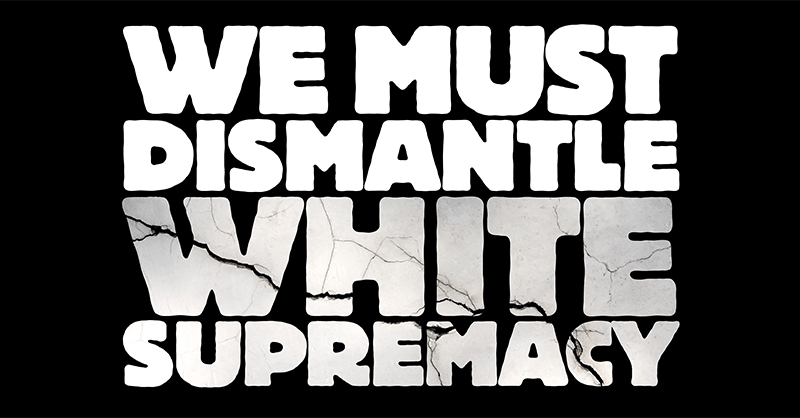Ben & Jerry’s Doesn’t Have Time for Platitudes – Marker

|
Getting your Trinity Audio player ready...
|
SOURCE: Rob Walker | Marker
Traditionally, only overtly ideological brands have taken a bold stand on social justice issues. But the killing of George Floyd and the shockwaves that have followed have proved an exception. The public groundswell — protests in more than 100 cities across the nation — has forced companies across categories to respond. In fact, not responding has become an almost untenable move: Knicks owner Jerry Dolan has been slammed for an internal email explaining that his organization won’t be speaking up on matters of police brutality and systemic racial injustice because “we are not any more qualified than anyone else to offer our opinion on social matters.”
Still, most of the resulting statements, while presumably well-meaning, strike carefully calibrated tones that make them seem almost interchangeable. As one online critic put it, you could replace many of them with the boilerplate: “We at [Brand] are committed to fighting injustice by posting images to Twitter that express our commitment to fighting injustice.”
We Must Dismantle White Supremacy.
– Ben & Jerry’s
And many have been dinged on social media. Uber professed to “stand in solidarity with the Black community,” and was promptly criticized for denying its disproportionately minority driver force the benefits of full-time employees. Fitness chain Pure Barre’s note to its “New York family” of customers was among many criticized for lacking a call to action to back relevant groups with financial support — or mention having taken any such tangible actions themselves. And by now, that’s crucial, Ericka Claudio, a social impact strategist, told Business of Fashion: “Saying ‘Black Lives Matter’ is literally the bare minimum.”
But the company that made every other one seem like little more than woke-washing came from Ben & Jerry’s.
“We Must Dismantle White Supremacy,” the premium ice-cream brand began, launching into a lengthy statement that reads like a full-throated manifesto from an activist group. “All of us at Ben & Jerry’s are outraged by the murder of another Black person by Minneapolis police officers,” it bluntly continued, underscoring that: “We have to speak out… We have to say his name: George Floyd.”
Explicitly rejecting the “bad apple” defense of Floyd’s killers, the at-times searing statement blamed “inhumane police brutality that is perpetuated by a culture of white supremacy.” And after a swift but specific overview of systemic racism in America and its victims, it issued a set of demands: First, for President Trump among others to disavow white supremacist supporters. Second, for Congress to create a commission to determine remedies for the centuries-long effects of slavery and discrimination. Third, for a national task force to devise legislation “aimed at ending racial violence and increasing police accountability.” And fourth, for the Department of Justice to “reinvigorate” its Civil Rights Division, and reverse regressive policies from the Trump era. The statement concludes by calling on “white America” to “collectively acknowledge its privilege” and commit to concrete change.
This would be a more candid-than-average declaration for most political campaigns, let alone commercial ice cream brands. And while we have certainly seen an unusually large number of companies speak up in support of racial justice generally lately, it remains exceedingly rare for a mainstream brand — owned by a multinational conglomerate (Unilever), no less — to call out the president, by name.
I don’t think I know of a single brand that sticks to their mission statement and core values like Ben & Jerry’s.
– Naima Cochrane
Not surprisingly, the statement made news. And, on social media, it won plenty of praise. The document “just put all other corporate statements to shame,” podcaster and journalist Jemele Hill tweeted. “I don’t think I know of a single brand that sticks to their mission statement and core values” so consistently, writer Naima Cochrane tweeted. “Which just proves: Speaking out and taking a firm stand does not, in fact, hurt your bottom line.” (Despite years of outspokenness, Ben & Jerry’s remains a top-selling ice-cream brand, with sales of $680 million last year.)
As I wrote last year, a real dividing line has been emerging between businesses that are willing to accept their role in society beyond the quarterly earnings report, and those that prefer to hide behind some version of neutrality as a justification for making as much money as possible. That’s led to decisions like mainstream chains such as Dick’s Sporting Goods and Walmart rethinking gun sales, for example. What I argued then is even more true now: In an increasingly polarized marketplace — a world where even wearing a mask to protect yourself and others from spreading a virus — has somehow become a political flashpoint, companies have to take sides.
So while some still hang onto the traditional argument that it’s better for brands to avoid any subject that may prove controversial (any illusion, anyway), the Ben & Jerry’s statement is a reminder that brands increasingly need to get comfortable having a point of view on societal issues. They need to articulate it clearly — and then, back it up with action.
The Ben & Jerry’s statement looks us in the eye, avoiding safe platitudes. But it also has weight because it builds on the company’s existing, demonstrable track record on speaking up on civil rights and race issues. It endorsed Black Lives Matter years ago, has supported reparations, and on its website offers up useful and forthright history and profiles of civil rights leaders. More broadly, the company’s namesake founders were famously progressive Vermonters who swirled their social views into their products when they first started in the late 1970s. The co-founders withdrew from direct involvement after selling to Unilever back in 2000, but remarkably, the ideological spirit of the brand has remained. (When Marker inquired for an interview, the company responded: “For now we’re going to listen, learn, and get to work on next steps while we politely decline the interview opportunity.”)
For once, don’t do it.
– Nike
One of the other notable, early brand responses to Floyd’s killing came from Nike: “For once, don’t do it,” the company said in a play on its famous slogan, urging its customers (and everyone else, presumably) not to turn a blind eye to recurring and violent racial injustice. Nike has a more complicated track record than Ben & Jerry’s, but its decision to double down on Colin Kaepernick gives it more credibility to take a bolder stance.
Admittedly, brands with an apathetic past of caring about racial justice at all — even when Black or other people of color are core to their consumer base — might have a tougher time striking a more blunt and straightforward and fearless tone. But one way to fix that is to start establishing that track record. How about right now?


